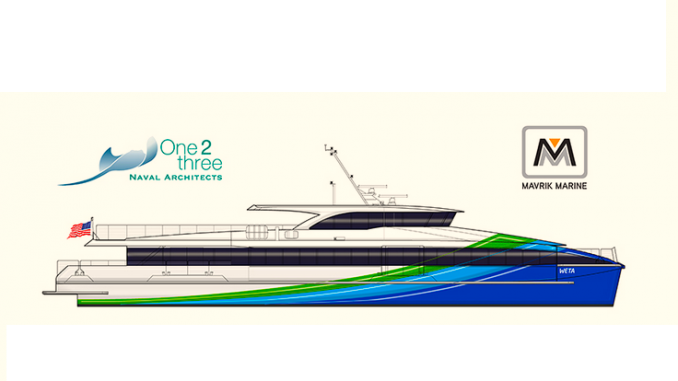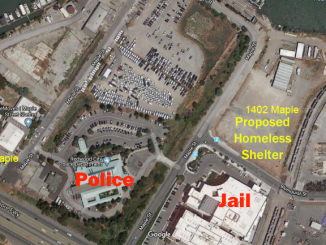
BY EMILY MIBACH
Daily Post Staff Writer
Redwood City Council is moving forward with early plans for adding ferry service to the city’s port, although some residents say they are worried about the project.
Council last night (Jan. 11) unanimously approved a feasibility study, which examined if it makes sense financially and logistically for a ferry service, likely run by the county’s ferry agency, Water Emergency Transportation Authority, also known as WETA.
Before the council’s meeting, the WETA and the city’s port board recommended that the city ought to move forward with the plan.
Next up, port officials will draw up a much more in-depth financial study and business plan. That study will also incorporate a fare equity study, where officials will look at whether riders at all income levels can afford the estimated $11.30 one way ticket.
The council reviewed two potential routes, one between Oakland and Redwood City, and another between Redwood City and San Francisco.
The Oakland route would take about 65 minutes and the San Francisco ride about 55 minutes, according to the city’s consultant Bill Hurrell.
While the council was receptive to the idea — Mayor Diane Howard has been working on bringing ferries to Redwood City since 1997 — some residents laid out their concerns.
Susan Rowinski, a coordinator at the Bair Island Aquatic Center, said she is worried about the wake the boats would cause, pointing out that recreational rowers, kayakers, swimmers and other water enthusiasts are often outright at commute times. During previous trials by privately owned ferry services, safety issues came up. Rowinski and at least one other speaker requested that the city set up a speed limit in some of the more highly traveled areas of Redwood City waters.
Others expressed environmental concerns. Gita Dev and others from the Sierra Club Loma Prieta Chapter said they are worried that ferries would increase coastal erosion. Dev also said that the number of people who would get off the freeways to take the ferry is not enough. She pointed out that ferries are still powered by diesel fuel.
Council member Lissette Garnica Espinoza asked WETA officials if it is possible to run electric boats. Kevin Connolly, WETA’s planning manager, said that right now electric ferries are not fast or big enough to use on routes such as Redwood City’s. Connolly added that electric ferries would come in the next 10 years or so.
Dev and others also asked the council to make sure that the regional transportation agency that may give the city funds to run the ferry program, the Metropolitan Transportation Commission, not force the city to zone for housing within a half-mile of the ferry terminal, which would be at the far end of the port. The commission wants to encourage housing near transportation hubs and often requires that transit studies be near housing.
Currently, there are no housing development projects planned for the port, nor is any housing zoned in that area. Of the council members who spoke about the issue, all agreed that housing is not fit near the city’s industrial port.
The business plan will examine how ferry service will be subsidized.
Hurrell’s report to the council suggested that the ferry service would require a $5 million annual subsidy. He and Connolly told the council that no cities in the WETA system will subsidize the ferry system. Instead, the money will come from regional transportation taxes.
But the city will still have to figure out how to fund the roughly $16 million terminal and buy boats to the tune of $40 million.
Connolly said $15 million in county funds is earmarked for the city to use to set up a port. When the county divvied up Measure A, a half-cent transportation sales tax, $30 million went to ferry services.
South San Francisco and Redwood City are both eligible for half the funds since those are the two cities that have expressed interest in ferries. South City’s terminal opened in 2012.
New Planning Commissioner
In other news, the council earlier in the meeting appointed Jessica Meunier to the city’s planning commission to take over the term vacated by Michael Smith, who was elected to city council.
ᐧ




Ferries sound like a great idea but who is going to subsidize it?
Let’s hope this doesn’t result in a tax like the new Caltrain tax. If the fares don’t pay for the ferries, shut it down.